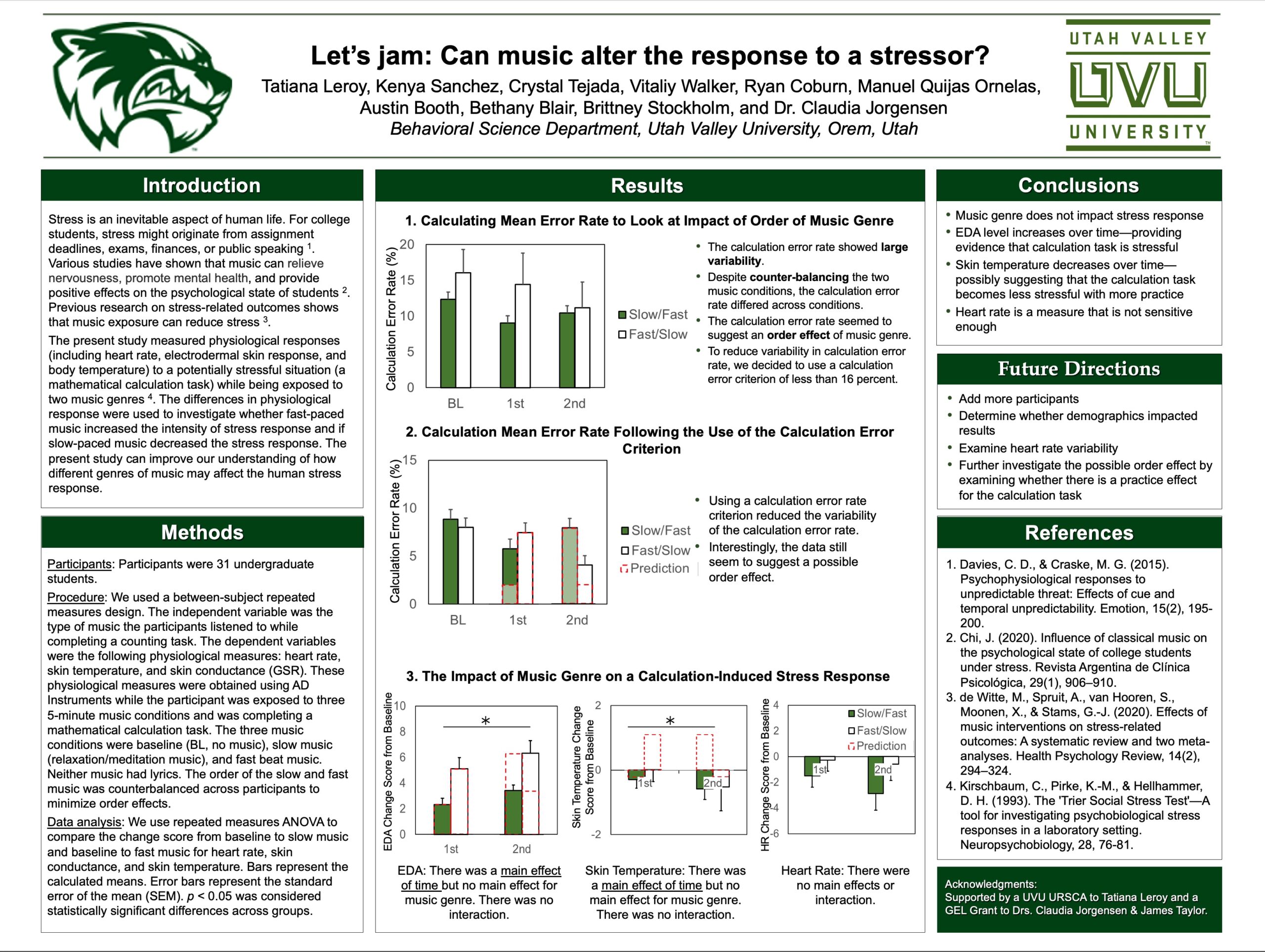Presenter Name: Tatiana Leroy
Additional Presenters:
Bethany Blair (bethany.blair@uvu.edu); Ryan Coburn (ryancoburn20@gmail.com); Manuel Quijas Ornelas (10879073@uvu.edu); Kenya Sanchez (kenyaivsanchez@gmail.com); Brittney Stockholm (dc13forever@gmail.com); Vitaliy Walker (vitaliy.walker@gmail.com)
Description
When exposed to stressful situations, the human nervous system reacts with the fight or flight response activation. Physiological indicators of the activation of the fight or flight response include a change in body temperature, increased heart rate, blood pressure, and sweating (Sriram et.al, 2012). There is mounting evidence implicating stress as physiologically and psychologically harmful. For example, recent research has found a correlation between chronic exposure to stress and the development of mental illnesses such as anxiety and depression. Furthermore, chronic stress has the potential to change the anatomy of the brain along the hypothalamic pituitary adrenal axis (HPA), which is an important part of the neuroendocrine system, plays a role in the release of stress hormones, and helps regulate moods, emotions, and sexual behaviorisms (Ramiz, et.al., 2013).
When it comes to college students, developing healthy coping mechanisms to deal with stress could positively influence their academic performance and it might improve and maintain their psychological and physiological well-being (Skowronek, 2014). Various research studies have been conducted to reveal the therapeutic qualities of music. Music can effectively relieve nervousness, promote mental health, and positively affect students' psychological states (Chi, 2020). Current research on stress-related outcomes shows that music interventions play a significant role in stress reduction, both on psychological and physiological levels (de Witte et. al, 2020).
The present study focuses on measuring physiological responses (including heart rate, electrodermal skin response, and body temperature) to a potentially stressful situation (a mathematical calculation task) while being exposed to various music genre types (Kirschbaum et al., 1993). We hypothesize that calmer music might reduce stress response, while faster and more upbeat music might increase the stress response.
The study will employ a within-subject repeated measures design; the fast-paced and slow-paced music genres will be counterbalanced. After obtaining the baseline physiological measures when no music is played, the participant will be exposed to relaxation/mediation music and fast-beat music. When exposed to different types of music, the measured differences in physiological response will be used to investigate how different genres of music that vary in tempo may affect the human stress response. Findings on the effects of music manipulation on the human nervous system can be used as additional tools for the management of stress.
University / Institution: Utah Valley University
Type: Poster
Format: In Person
Presentation #C35
SESSION C (1:45-3:15PM)
Area of Research: Social Sciences
Email: 10976274@uvu.edu
Faculty Mentor: Claudia Jorgensen

